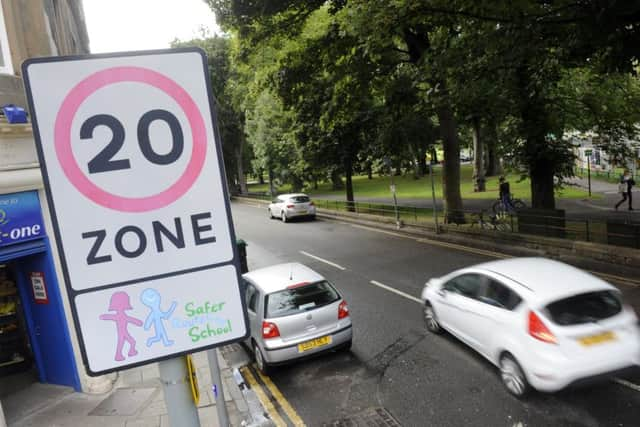Scottish Government refuses to back nationwide 20mph speed limits in built-up areas
In a letter seen by The Scotsman and sent to national cycling charity Sustrans, Michael Matheson said decisions on 20mph speed limits were best taken at local authority level.
But that stance was rejected by environmentalists, who said SNP ministers should back the Safer Streets Bill introduced by Greens MSP Mark Ruskell if they are serious about encouraging more Scots to walk or cycle instead of driving.
Advertisement
Hide AdAdvertisement
Hide Ad

Last month Nicola Sturgeon declared “a climate emergency” and later scrapped a proposed tax cut on flights to and from Scotland in a display of how seriously her government was taking the issue of reducing carbon emissions.
Backers of the Safer Streets law claim it would help fix what they describe as an incomplete patchwork of 20mph zones across Scotland.They claim the existing process for creating such zones in urban areas remains costly and time-consuming for councils already under financial pressure.
Under the legislation, local authorities would be allowed to retain some streets with higher speed limits in consultation with communities, but these would be the exception rather than the rule.
A study by the Glasgow Centre for Population Health found a 20mph speed limit in built-up areas would save the public up to £40 million a year.
Last week the Welsh government confirmed it would introduce similar legislation, declaring that 20mph should be the default speed limit for residential areas.
However, Mr Matheson said in the letter that speed limits should not be set in isolation.
“Changing a speed limit does not guarantee that actual vehicle speeds will change,” the minister wrote.
“The guidance on setting all speed limits is clear that they should be reasonable and consistent if they are to be credible to road users and obeyed as a result.”
Advertisement
Hide AdAdvertisement
Hide AdHe continued: “We are clear that 20mph speed limits are a good idea when implemented in the right environment because they have the real potential to encourage more active travel and increase people’s perceptions of ‘feeling safe’, but further consideration needs to be given to the impact and consequences of a nationwide 20mph limit, including an assessment of Scotland’s road network, before we can fully support this bill.”
Professor Chris Oliver, a retired orthopaedic trauma surgeon and pro-cycling campaigner, said there was significant concern among the cycling community at the lack of support from the Scottish Government for the Safer Streets Bill. “It’s ironic that the Scottish Government have both declared a climate emergency and scrapped the reduction of air travel levy, but are wavering on implementing the 20mph bill,” he said.
“We know it’s well established that 20mph makes cities much more liveable, enable more active travel to occur in 20mph areas [walking and cycling], more equality of access to transport, better air quality, better health and significantly fewer casualties.
“I know as a retired Edinburgh orthopaedic trauma surgeon that its difficult to argue with reduction of casualties when 20mph is introduced.”
